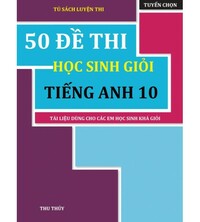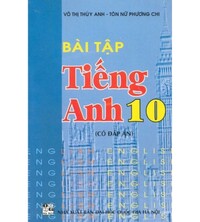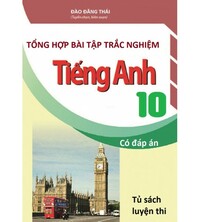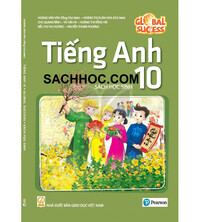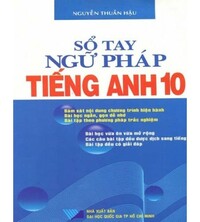Vocabulary & Grammar - trang 21 Unit 8 SBT Tiếng anh 10 mới
Look for five more words related to learning and write them down in the spaces.
Bài 1
Task 1: Look for five more words related to learning and write them down in the spaces. (Hãy tìm năm từ khác liên quan đến học tập và viết vào trong khoảng trống.)
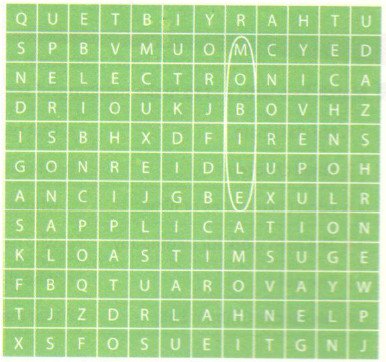
Đáp án:
1. mobile
2. personal
3. digital
4. technology
5. electronic
6. application
Tạm dịch:
1. di động
2. cá nhân
3. kỹ thuật số
4. công nghệ
5. điện tử
6. ứng dụng
Bài 2
Task 2: Complete the sentences with the words found in the word-search in 1. Make changes to the word forms when necessary. (Hoàn thành các câu với các từ tìm thấy trong 1. Thay đổi các mẫu từ khi cần thiết.)
1. I'm looking for some new _____ to put on my smartphone to improve my English pronunciation.
2. Please don't ask him questions about his family. He hates answering ______ questions.
3. That laptop, which has the latest______ , is very expensive.
4. The phrase'______ natives' refers to people who are familiar with computers and the Internet from an early age.
5. People are now familiar with the term m-learning or______ learning, which focuses on the use of personal electronic devices.
6. My son, who is a promising pianist, is now interested in composing ______ music.
Đáp án:
1. I'm looking for some new applications to put on my smartphone to improve my English pronunciation.
2. Please don't ask him questions about his family. He hates answering personal questions.
3. That laptop, which has the latest technology , is very expensive.
4. The phrase digital natives' refers to people who are familiar with computers and the Internet from an early age.
5. People are now familiar with the term m-learning or mobile learning, which focuses on the use of personal electronic devices.
6. My son, who is a promising pianist, is now interested in composing electronic music.
Tạm dịch:
1. Tôi đang tìm kiếm một số ứng dụng mới để đưa vào điện thoại thông minh của mình để cải thiện phát âm tiếng Anh.
2. Xin đừng hỏi anh ấy những câu hỏi về gia đình anh ấy. Anh ấy ghét trả lời câu hỏi cá nhân.
3. Máy tính xách tay đó, có công nghệ mới nhất, rất đắt tiền.
4. Cụm từ người bản địa kỹ thuật số 'dùng để chỉ những người quen thuộc với máy tính và Internet từ khi còn nhỏ.
5. Mọi người giờ đã quen thuộc với thuật ngữ m-learning hoặc mobile learning, tập trung vào việc sử dụng các thiết bị điện tử cá nhân.
6. Con trai tôi, một nghệ sĩ piano đầy triển vọng, hiện đang thích sáng tác nhạc điện tử.
Bài 3
Task 3. Circle the correct option. (Khoanh tròn tùy chọn chính xác.)
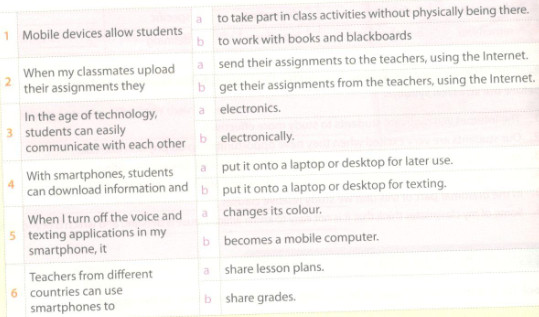
Đáp án:
1a 2a 3b
4a 5b 6a
Bài 4
|
1. My classmate, |
a. that have unhappy endings. |
|
2. Small children |
b. who invented the telephone, was born in Scotland. |
|
3. I don't like stories or films |
c. whose injury is serious has been taken to hospital. |
|
4. The men work for a company |
d. who have special needs can take advantage of this new application. |
|
5. The girl |
e. who didn't use a dictionary, translated this story. |
|
6. Alexander Graham Bell, |
f. that makes good laptops and tablets. |
1. e 2. d 3. a
4. f 5. c 6. b
1. My classmate, who didn't use a dictionary, translated this story.
2. Small children who have special needs can take advantage of this new application.
3. I don't like stories or films that have unhappy endings.
4. The men work for a company that makes good laptops and tablets.
5. The girl whose injury is serious has been taken to hospital.
6. Alexander Graham Bell, who invented the telephone, was born in Scotland.
Tạm dịch:
1. Bạn cùng lớp của tôi, người không sử dụng từ điển, đã dịch câu chuyện này.
2. Trẻ nhỏ có nhu cầu đặc biệt có thể tận dụng ứng dụng mới này.
3. Tôi không thích những câu chuyện hay những bộ phim có kết thúc không vui.
4. Những người đàn ông này làm việc cho một công ty sản xuất máy tính xách tay và máy tính bảng tốt.
5. Cô gái bị thương nặng đã được đưa đến bệnh viện.
6. Alexander Graham Bell, người đã phát minh ra điện thoại, được sinh ra ở Scotland.
Bài 5
Task 5: Finish the incomplete sentences, using which, that, who or whose. (Hoàn thành các câu chưa đầy đủ, sử dụng which, that, who hoặc whose.)
1. Quang answered the phone. He told me you were out.
Quang........................................
2. A computer technician served us. He was very nice.
A computer technician........................................
3. The article is about smartphones. They have become excellent study tools.
The article is........................................
4. This tablet is mine. Its screen has been scratched.
This tablet........................................
5. Do you know the name of the man? His laptop was broken.
Do you.........................................
6. An e-book is an electronic book. It can be read on a mobile device.
An e-book is ........................................
Đáp án:
1. Quang answered the phone. He told me you were out.
Quang, who told me you were out, answered the phone.
Tạm dịch: Quang, người bảo tôi ra ngoài, trả lời điện thoại.
2. A computer technician served us. He was very nice.
A computer technician, who/that was very nice, served us.
Tạm dịch: Một kỹ thuật viên máy tính, người rất tốt bụng đã phục vụ chúng tôi.
3. The article is about smartphones. They have become excellent study tools.
The article is about smartphones, which have become excellent study tools.
Tạm dịch: Bài báo nói về điện thoại thông minh, đã trở thành công cụ học tập tuyệt vời.
4. This tablet is mine. Its screen has been scratched.
This tablet, whose screen has been scratched, is mine.
Tạm dịch: Máy tính bảng này, có màn hình bị trầy xước, là của tôi.
5. Do you know the name of the man? His laptop was broken.
Do you, know the name of the man whose laptop was broken?
Tạm dịch: Bạn có biết tên của người đàn ông có laptop bị hỏng không?
6. An e-book is an electronic book. It can be read on a mobile device.
An e-book is an electronic book which/that can be read on a mobile device.
/ An e-book which/that can be read on a mobile device is an electronic book.
Tạm dịch:
E-book là một cuốn sách điện tử có thể đọc trên thiết bị di động.
/ E-book cái mà có thể đọc trên thiết bị di động là sách điện tử.
Bài 6
Task 6 Underline the mistake in each sentence and correct it.
Gạch chân lỗi trong mỗi câu và sửa lại nó.
1. Do you remember the name of the hotel what is at the end of this street?
2. The man he came to fix the Internet access for me was skillful.
3. The girl whose he fell in love with left him after two months.
4. John, who have used his smartphone to take pictures of the trip, will upload them on the Internet.
5. What is the name of the boy his father is the president of the School Parents Association?
6. The teachers whom think that mobile devices are distracting ban them in their classrooms.
Đáp án:
1. Do you remember the name of the hotel what is at the end of this street?
Đáp án: what —> which/that
2. The man he came to fix the Internet access for me was skillful.
Đáp án: he —>who/that
3. The girl whose he fell in love with left him after two months.
Đáp án:whose —> who/that
4. John, who have used his smartphone to take pictures of the trip, will upload them on the Internet.
Đáp án: have —> has
5. What is the name of the boy his father is the president of the School Parents Association?
Đáp án: his —> whose
6. The teachers whom think that mobile devices are distracting ban them in their classrooms.
Đáp án: whom —> who/that
Search google: "từ khóa + timdapan.com" Ví dụ: "Vocabulary & Grammar - trang 21 Unit 8 SBT Tiếng anh 10 mới timdapan.com"
